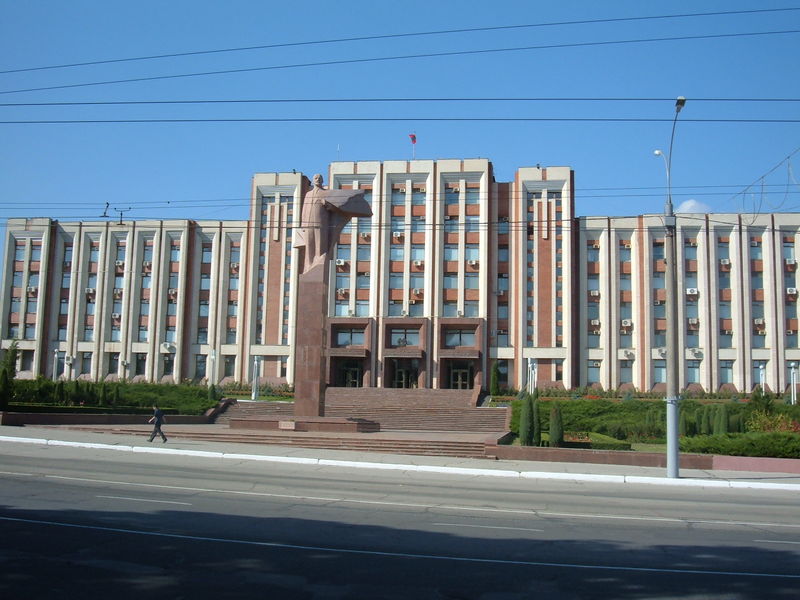
Possible Pitfalls For Chisinau In The Upcoming 5+2 Negotiations
Publication: Eurasia Daily Monitor Volume: 8 Issue: 110
By:

Moscow and Berlin converge in asking Chisinau to give up the 2005 law on Transnistria conflict-resolution principles, renounce the unitary character of the state, and (backstage) to move toward federalizing Moldova (EDM, June 6, 8). Chisinau may well face such demands on June 21 in Moscow, when the 5+2 negotiations resume after a five-year breakdown.
Berlin’s position is not that of the European Union. The EU, however, does not seem to have defined its collective position vis-à-vis the German initiative. The United States is taking a back seat, conceding the lead to the EU even as Germany attempts to seize the lead from Brussels. However, Germany has no status in the 5+2 format, and no EU mandate to shape the agenda or negotiate with Moscow on the EU’s behalf.
At this point, only Moscow and Tiraspol are bringing their firmly entrenched goals to the upcoming negotiations. Chisinau has its own, fairly clear and constant objectives (“German Initiatives Favor Russia On Transnistria Talks,” EDM, June 8), but is being asked to demonstrate a “constructive” attitude through concessions at the outset. Moscow has warned that it would hold Chisinau primarily responsible for blocking the process, unless Chisinau abandons the 2005 law and the “unitary state” (Interfax, June 6).
In Tiraspol, “president” Igor Smirnov has asked the Supreme Soviet to draft and adopt a law on Transnistria’s objectives in the negotiations, ahead of the June 21 Moscow meeting (Olvia press [Tiraspol], June 7). Obviously, Moscow and Tiraspol will offer another tradeoff, whereby Transnistria would drop its law in return for Moldova abandoning its 2005 law. Certain European diplomats will almost certainly ask Chisinau to be “reasonable” and accept such an asymmetrical trade-off.
In almost 20 years of negotiations on the Transnistria conflict, Moldova was often asked for unilateral concessions, so as not to look “intransigent.” The Kremlin was always at the origin of such pressures on Chisinau. From time to time, Western partners would ask Chisinau for pre-emptive concessions, simply to induce Russia to restart negotiations that Moscow had itself blocked in the first place. Negotiations, while undoubtedly necessary and actively sought by Chisinau, had become a goal per se, without clearly defining the final objectives until 2005. In that year, the 5+2 negotiation format was created with US and EU participation. However, Russia (using Tiraspol as a cover) blocked that process after only five months (March 2006). To restart it now, it seems easier for Berlin (and a few like-minded chancelleries) to put the burden of “flexibility” on Moldova, rather than on Russia.
The resumption of negotiations on June 21 in Moscow holds several potential traps for Chisinau. The tandem of Moscow and Tiraspol can be expected to seek a “multi-level” negotiating process, i.e., supplementing the 5+2 format with two other formats: Chisinau-Tiraspol (1+1) and Chisinau-Tiraspol-Moscow (2+1). This would undercut the 5+2 format even as it re-starts. Russia would play down the political dimensions of those parallel formats, and declare that any decisions reached there would be subject to approval by the full-fledged 5+2. However, Moscow would seek to dilute Western influence and create faits accomplis through those parallel formats. By the same token, Tiraspol would seek some semblance of recognition in such formats. All this would confuse and delay an internationally negotiated solution to the conflict.
The Moscow meeting can be expected to issue a statement of principle and purpose, serving as founding document of a revived 5+2 process. Russian diplomats from Foreign Minister Sergei Lavrov down, want Moldova to give up the 2005 law, replace the “unitary” with a “federal” state structure, and defer the issue of Russian troop withdrawal almost indefinitely, as preconditions to any progress in negotiations. Judging from the long track record of this process, Russia (and parties receptive to Russia’s views) can draft a statement of principle and purpose with ambivalent formulations, potentially accommodating Moscow’s demands, though susceptible to interpretation and further bargaining. This could paralyze the future course of negotiations, enable Moscow to continue playing for time, and ultimately generate pressures on Moldova to accept Russia’s interpretations as a means to “unblock the process.”
Almost certainly, Moscow and Tiraspol will demand some acknowledgment of “past documents,” signed by Chisinau with Moscow and/or Tiraspol prior to 2005, or outside the 5+2 format after 2006. Those documents have no legal standing, however; they are no more than records (or “memoranda”) of conversations, with no binding effect. Moscow and Tiraspol, however, interpret any such document as “agreements,” constantly demanding recognition of “previously reached agreements” (“ranneye dostignutyie dogovoryonnosti” is the standard phrase). Even an indirect acknowledgment of such “earlier” documents by Chisinau (e.g., accepting to “examine” them, as has been suggested) would irreparably distort the future course of negotiations from the moment of their restart. What is being re-started, actually, is the 5+2 format, not anything that occurred prior to 2005, or after 2006 outside that format. Thus, Chisinau would be fully justified to acknowledge only documents that were (or would henceforth be) signed within the 5+2 format.




